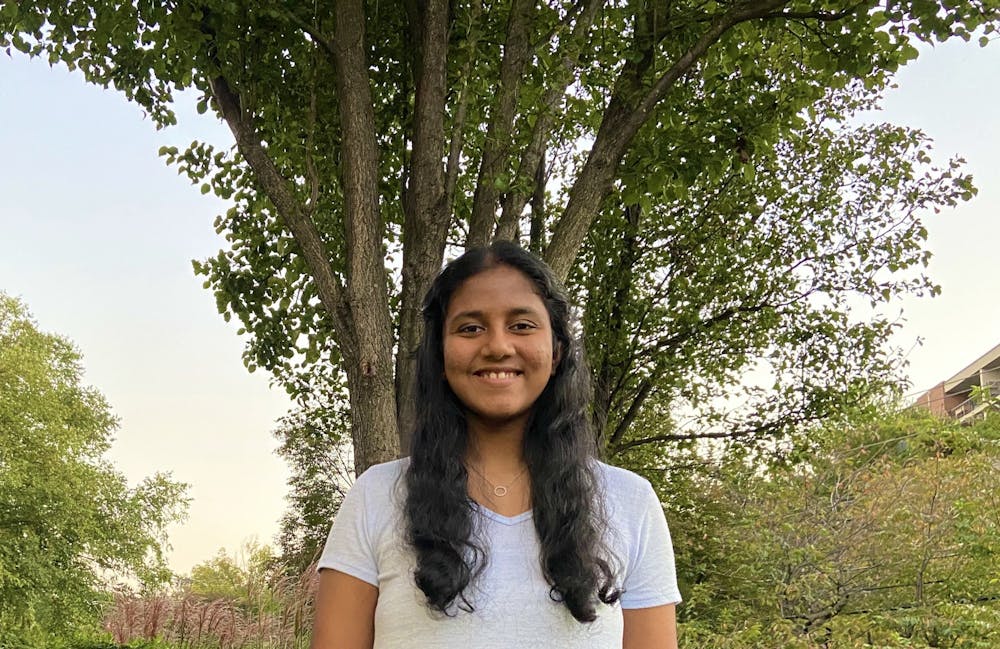About a month ago, I made the brave choice to finally swap out my fiction novels for a nonfiction book — “Outliers” by Malcolm Gladwell. The book details how successful people became successful, and it draws examples from Bill Gates, The Beatles, Canadian hockey players and others.
Although many of Gladwell’s ideas were eye-opening, one that particularly stuck with me is the concept of “10,000 hours.” This is where Gladwell brings up Bill Gates and The Beatles to theorize that it takes about 10,000 hours of practice for any individual to become an expert at a topic. It’s Gladwell’s golden rule of greatness, and while the theory is not without imperfection, I believe there’s a lot to take away from it.
For starters, the underlying idea behind the 10,000 hours rule is that practice can make perfect — or at least closer to perfect. With Gladwell’s theory, it appears that with enough hard work, endurance and patience, you can achieve even your far-fetched goals. Needless to say, it’s not as easy as it sounds. It surely isn’t a simple feat to devote 10,000 hours to any activity. But at the same time, there’s something so reassuring about the fact that effort can be enough.
Growing up, I had a very narrow mindset about what success and intelligence looked like. I thought that in order to excel at something, you had to be born with a knack for it. And while that may be true in some cases — such as children with abnormally high IQs — talent does not have to be innate. There are bound to be factors outside of our control, such as the socioeconomic class we’re born into and the connections we have. But as Gladwell’s 10,000 hours rule has reinforced, we are at least somewhat in control of our success. To me, that’s an incredibly simple yet beautiful sentiment.
As a result of thinking that our abilities were predetermined, I also spent many years hoping I’d one day wake up and discover a hidden talent. That talent — whether it was grasping an obscure subject or playing an instrument — would eventually become my career. In my mind, it didn’t make sense to choose a major or career path if I wasn’t sure I could excel in that area.
Even now, as I approach my second year, I keep wondering whether my intended major of math is the right one for me. Math has never come easy to me, and I’m far from being naturally skilled at it. It almost feels like the subject should be off-limits for me no matter how much I enjoy it. When other students can complete a problem set and pick up new concepts in half the time it takes me, why should I even continue persisting with the subject?
I find that Gladwell has valuable insight to offer in answering why persistence matters. In fact, in one of his later chapters, Gladwell delves specifically into the subject of math. Using intensive research and past studies, he finds that the individuals who excel in math are also the ones who are willing to work the hardest and persist through any type of challenge. Even the 10,000 hours rule backs this idea. Effort and endurance are key to excelling and for me, that’s enough to stick with the things I like and enjoy in spite of my natural ability.
Ultimately, it’s important to remind ourselves that our work and our time are worth it — as seemingly obvious as that sounds. Sometimes, I still struggle with feeling incapable due to a lack of innate and intuitive ability. But if reading “Outliers” has taught me anything, it’s that we do have control over our skills and abilities. We can’t guarantee our success, but we can consistently take the steps needed to eventually get there. At the end of the day, even if you don’t have the 10,000 hours to become an expert, every additional hour you put in is bound to get you a step closer.







